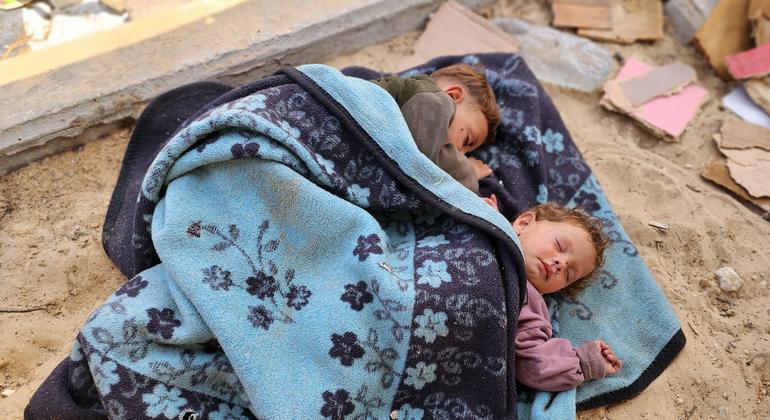The UN agency for Palestinian refugees (UNRWA) has confirmed that food distribution has been suspended in Rafah due to a lack of supplies and ongoing hostilities that have made it too dangerous for aid teams to work. The situation has been deteriorating since initial evacuation orders were issued on May 6, severely restricting the ability to provide aid and services. Without access to food distribution centers and supplies, aid teams are unable to distribute food to those in need.
UN Special Coordinator for the Middle East Peace Process, Tor Wennesland, expressed deep concern over the current trajectory in Rafah and the possibility of a larger-scale operation that could further undermine efforts to provide humanitarian aid. While some crossings have opened, more aid is needed to meet the enormous scale of needs in the region. Wennesland stressed the importance of a humanitarian ceasefire to save lives and address critical needs in Rafah and Gaza. The risks of wider regional spillover from the conflict remain as long as the situation remains unresolved.
On May 18, the UN reported that only 10 out of 16 supported bakeries in Gaza were operational, with the remaining six closed due to fuel shortages or ongoing hostilities. Without additional supplies, the operational bakeries are expected to run out of stock and fuel within days. This lack of access to essential supplies poses a threat to the availability of food for those in need in the region. The ongoing hostilities and restrictions on aid delivery are exacerbating an already dire humanitarian situation.
Efforts to provide humanitarian aid in Rafah and Gaza are hindered by the lack of access to food distribution centers and supplies. The inability to safely distribute food to those in need is a significant challenge faced by aid teams on the ground. The suspension of food distribution highlights the urgent need for a ceasefire and increased access to humanitarian goods to address the critical needs of civilians in the region. Without immediate action, the humanitarian situation in Rafah and Gaza will continue to deteriorate.
In response to the escalating crisis, Ireland, Spain, and Norway jointly announced their intention to recognize a Palestinian state, effective May 28. This diplomatic move follows months of consultations with like-minded countries across Europe and the Middle East. The recognition of Palestine by these countries reflects a broader international effort to address the ongoing conflict and support the rights and needs of the Palestinian people. This recognition could have implications for future diplomatic efforts to resolve the conflict and provide much-needed aid and support to those affected by the crisis in Rafah and Gaza.









